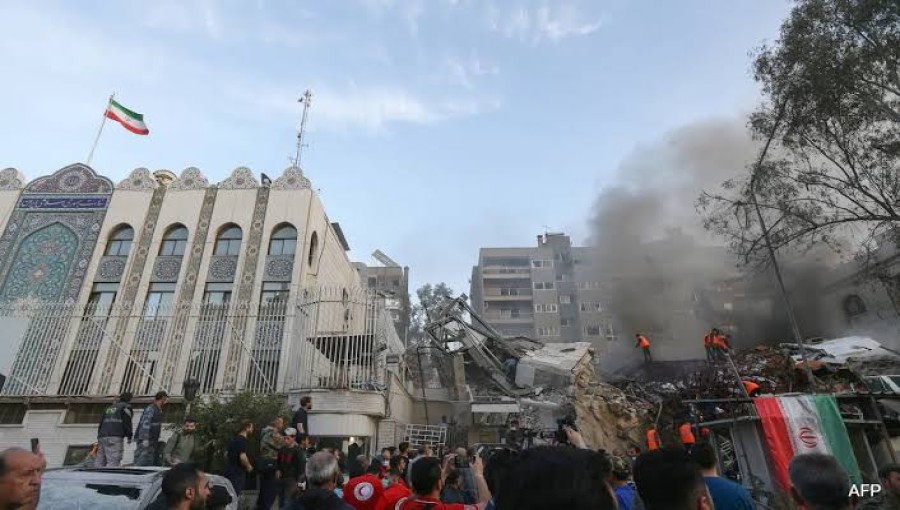In a significant development marking a shift in the dynamics of the Israel-Iran conflict, Israel has acknowledged launching a retaliatory strike on Iran, targeting Isfahan, following Iran's unprecedented attack on the Israeli consulate in the Syrian capital, Damascus.
The Israeli government, through Security Council member and Transport Minister Miri Regev, confirmed the retaliatory action, marking the first direct attack by Israel on Iran. Minister Regev highlighted the importance of Israel's response, emphasizing that Israel cannot remain passive in the face of attacks and must send a clear message to the world.
According to Minister Regev, the decision not to immediately admit to the attack was a strategic one, aimed at maintaining a cautious approach amidst escalating tensions. She emphasized that Israel successfully intercepted most of the drones and missiles launched from Iran, preventing potential widespread damage.
Speaking to Israel's Channel 14, Minister Regev stated that while Iran had announced no plans for further retaliation, Israel remains skeptical, given Iran's history of hostility towards Israel. She suggested that Iran's current restraint may be aimed at de-escalating tensions in the region, rather than a genuine commitment to peace.
The admission of the retaliatory strike comes amid heightened tensions between Israel and Iran, with both sides engaging in proxy conflicts across the Middle East. The recent exchange of attacks marks a significant escalation in the longstanding conflict between the two regional powers.
Despite the focus on the Israel-Iran conflict, Minister Regev reiterated that Israel's primary objectives remain centered on addressing the situation in Gaza. With ongoing efforts to secure the release of hostages and eliminate threats posed by groups like Hamas, Israel remains vigilant on multiple fronts.
The admission of Israel's retaliatory strike on Iran underscores the evolving dynamics of the conflict in the Middle East and raises concerns about the potential for further escalation. As tensions persist, regional stability hangs in the balance, with both Israel and Iran closely monitoring each other's actions.





























Comment: